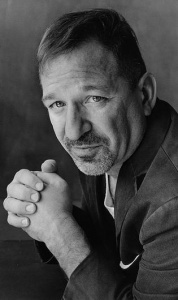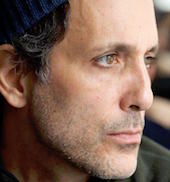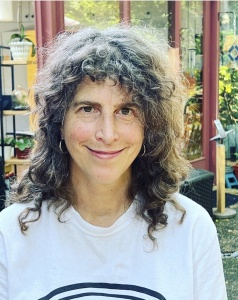David Biespiel

Founder of the Attic Institute of Arts and Letters
Texan, author of eleven books of poetry, criticism, memoir, and a novel, editor of two anthologies, professor for nearly forty years, including at Stanford, Maryland, Wake Forest, and George Washington universities, the last twenty-some at Oregon State University as Poet-in-Residence, editor of Poetry Northwest from 2005-2010, contributor to Air/Light, American Poetry Review, Bookforum, Denver Quarterly, Fence, Literary Imagination, Los Angeles Review of Books, New England Review, New Republic, New York Times, The New Yorker, Parnassus, Partisan, Poetry, Poery International, Politico, The Rumpus, Sewanee Review, Slate, the Washington Post, and many other literary magazines, recipient of Lannan, National Endowment for the Arts, and Stegner fellowships, the Pacific Northwest Booksellers Award, two Oregon Book Awards (in poetry and nonfiction), twice a finalist for the National Book Critics Circle Balakian Award.
David Biespiel's first book, Shattering Air, was published in 1996 by BOA Editions, with an introduction by Stanley Plumly. The University of Washington Press published his next major volumes of poetry, edited by Linda Bierds: Wild Civility (2003), The Book of Men and Women (2009), Charming Gardeners (2013), and Republic Café (2019).
His nonfiction includes A Place of Exodus: Home, Memory, and Texas (Kelson Books, 2020, memoir), The Education of a Young Poet (Counterpoint, 2017, memoir), which was selected a Best Books for Writers by Poets & Writers, A Long High Whistle: Selected Columns on Poetry (Antilever, 2015, criticism), drawn from his ten years as poetry columnist for The Oregonian, and Every Writer Has a Thousand Faces, (Kelson Books, 2010), with a tenth anniversary edition, introduced by novelist Chuck Palahniuk, published in 2020.
His first novel is A Self-Portrait in the Year of the High Commission on Love (SFA Press, 2023).
He is the editor of the definitive edition of contemporary Pacific Northwest poets, Long Journey, published by Oregon State University Press in 2006, and the Everyman Library's edition of Poets of the American South, published by Random House in 2014.
David Biespiel lives in Portland with his wife, the poet and essayist Wendy Willis.
Learn more about David Biespiel on Wikipedia
Visit David Biespiel's website









